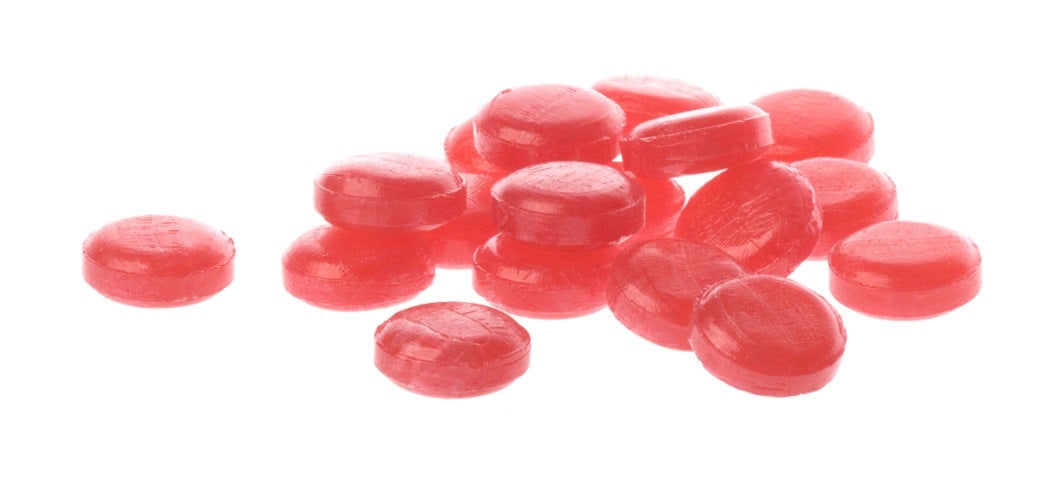Cough Drop Toxicity in Pets: What You Should Know

It’s getting to be that time of year again: time for flu shots, cough drops and all the precautions we take to avoid getting sick during the colder months. Although getting sick is sometimes unavoidable, you shouldn’t forget about your furry friends as you stock your medicine cabinet this year. Cough suppressants and cough drops are common remedies to keep us going throughout our days when we start to feel a cold coming on, and although these remedies often resemble our favorite hard candies, some of the ingredients in cough drops can be potentially dangerous to our pets.
Here’s what you should know:
According to the Animal Poison Control Center (APCC), the first thing you should do if your pet ingests cough drops is check the ingredients list.
Most cough drops contain sugar, menthol, eucalyptus oil, colors and flavor—all of which can cause gastrointestinal upset. However, some drops contain ingredients that can create more serious consequences:
Xylitol. Infrequently, xylitol may be found in cough drops. Xylitol can cause hypoglycemia and possible liver injury depending on the amount present in the drops and how many were ingested.
Benzocaine. Benzocaine most often causes gastrointestinal upset; however, benzocaine is metabolized into compounds which are capable of causing methemoglobinemia at high doses. Methemoglobinemia is a form of anemia that can cause symptoms such as: depression, weakness, rapid breathing, discoloration of skin and mucous membranes, jaundice, vomiting, hypothermia or the swelling of face or jaw. Being a local anesthetic, benzocaine will numb the throat when swallowed, or the mouth if chewed. This can pose a risk for aspiration and may become a choking hazard, particularly in those pets that may be more susceptible to aspiration.
When it comes to cough drop consumption in pets, obstruction may also be a concern depending on the number of drops ingested, the size of the pet and whether or not the wrappers were also ingested.
If you believe that your pet has ingested cough drops and are concerned about the possible dangers, contact your veterinarian or the APCC immediately to find out the next appropriate steps. Also, be sure to always keep your flu season supplies stored safely out of paws’ reach!
What is Cold and Flu Medication Toxicity in Dogs?
People often use over-the-counter cold and flu medications when they’re not feeling well, to help with congestion, fever, coughing, sneezing, pain, and various other symptoms. While some of these medications can be given to dogs for certain conditions, do so only after consulting with your veterinarian.
Some cold and flu medications have more than one active ingredient, which can make them dangerous for your dog.
If you suspect your dog has swallowed any cold or flu medication, please contact your veterinarian, an emergency hospital, and/or pet poison helpline as soon as possible.
Can Dogs Eat Halls Cough Drops? Safe?
Every once in a while, we’re bound to get ill; we more often end up with a cold or cough. Therefore, you end up doing what most people do – you stock on up on cough drops and Robitussin® among other things. When you’re sick, you don’t always pay as close attention to where everything is, and suddenly, you find out after running to the store (to go buy your favorite soup and grilled cheese items) that when you return home, there are cough drop wrappers everywhere shredded all over the floor, and almost no cough drops in site. Your first reaction is to panic. Can cough drops cause your dog to die from poisoning? What can you do now?